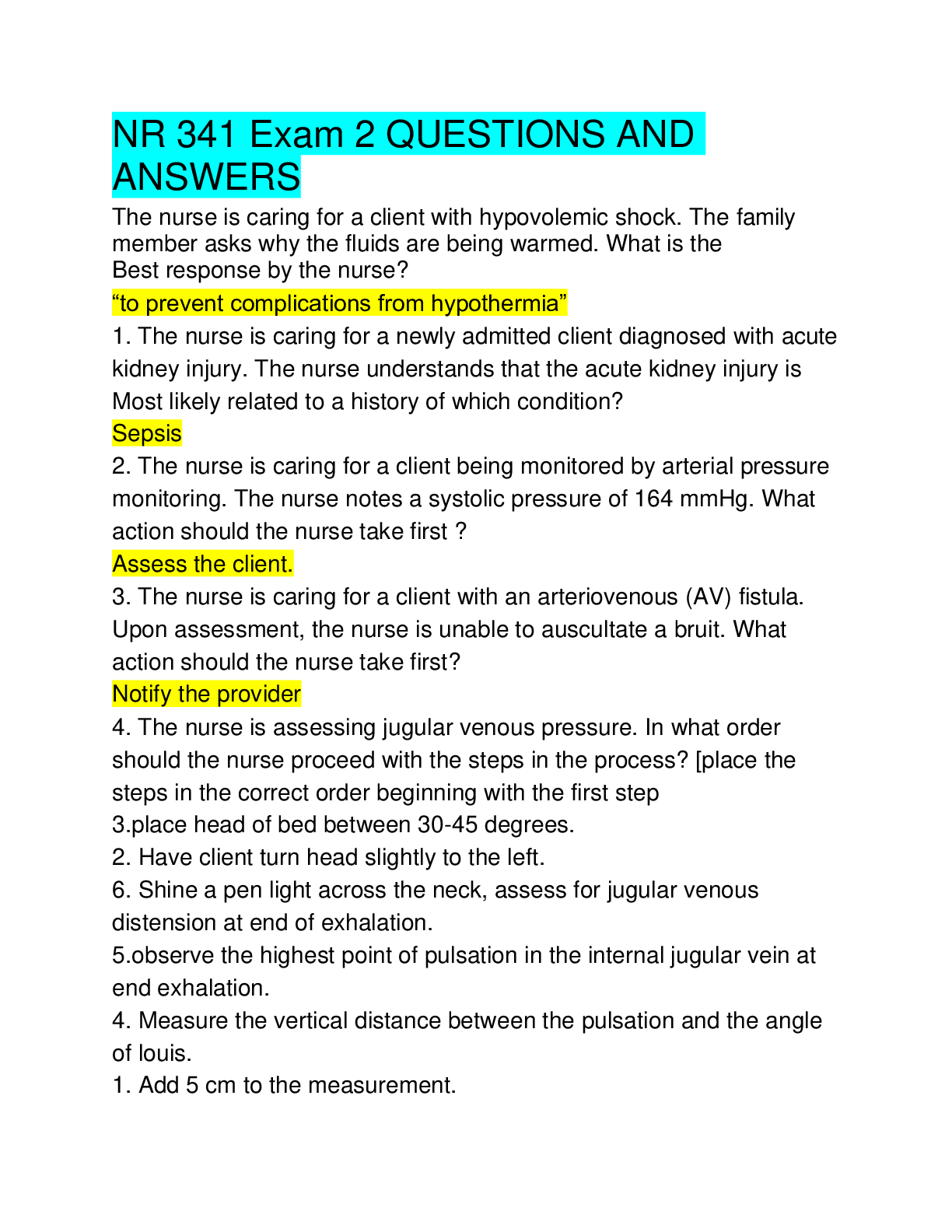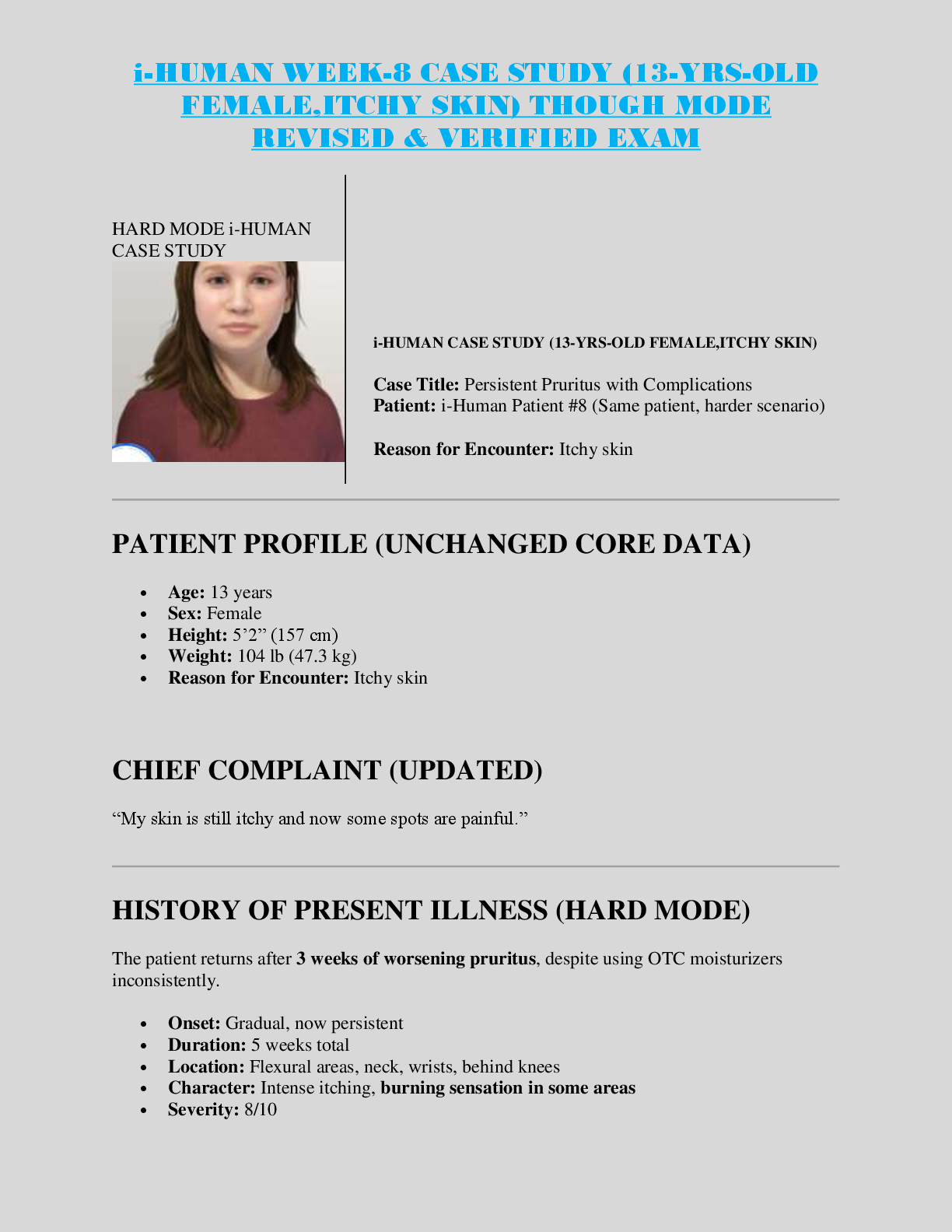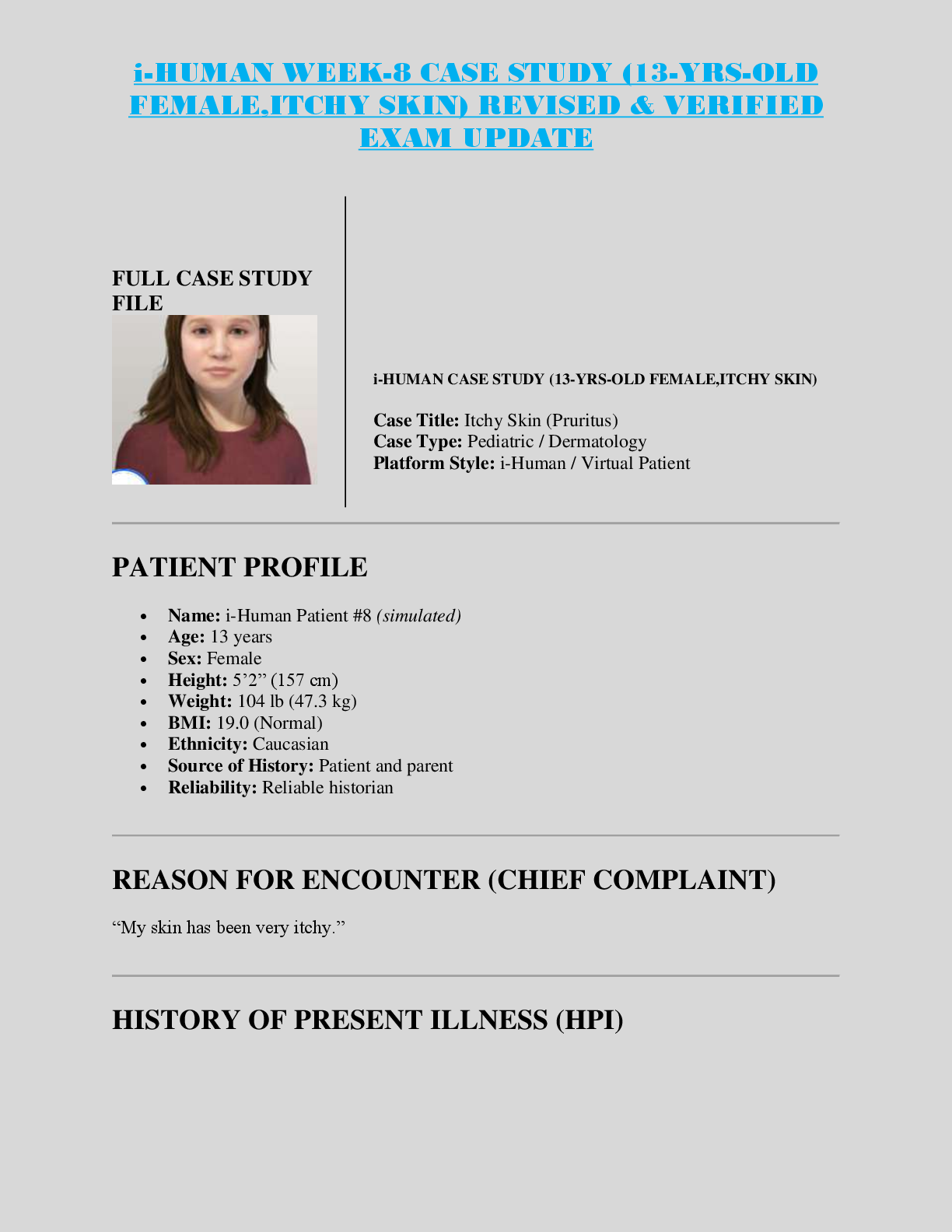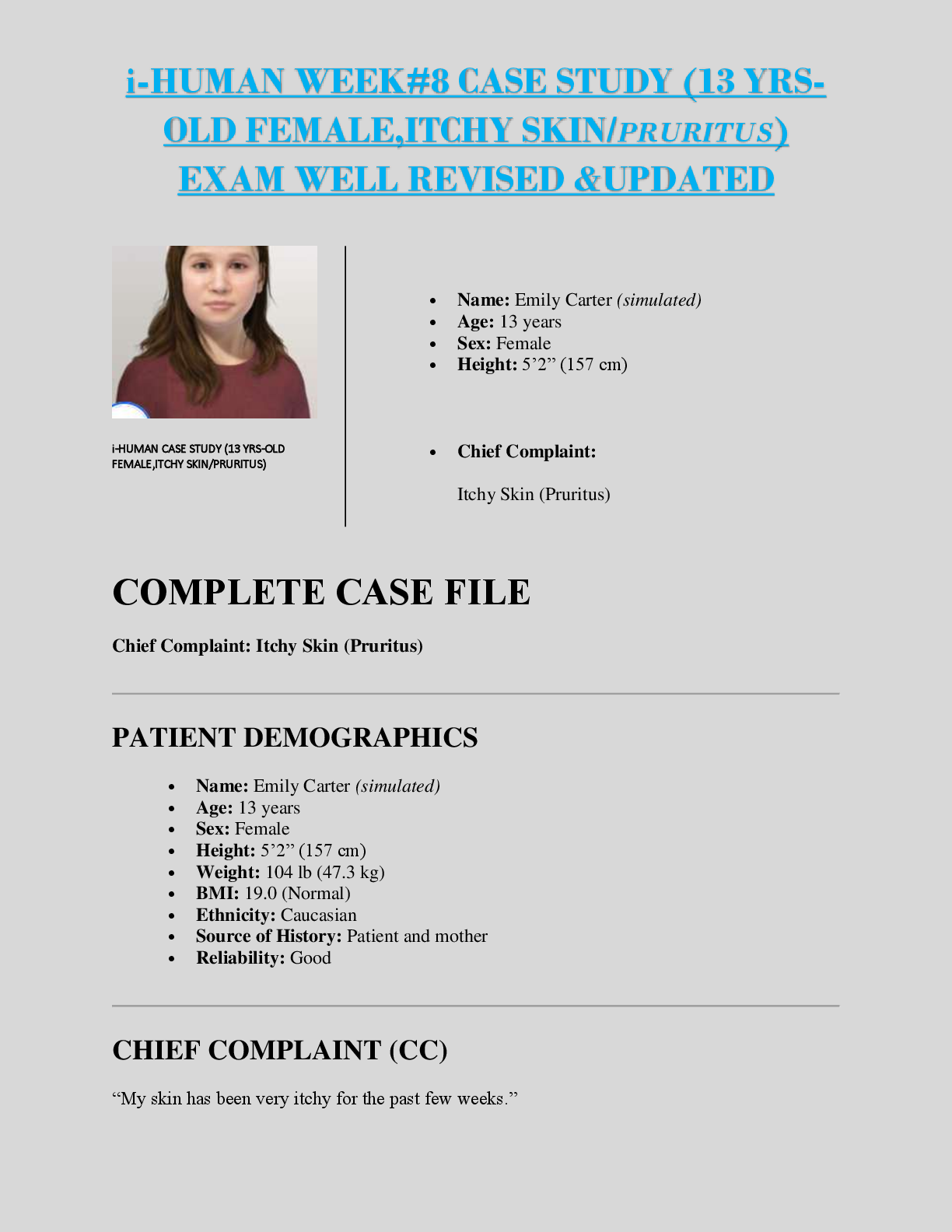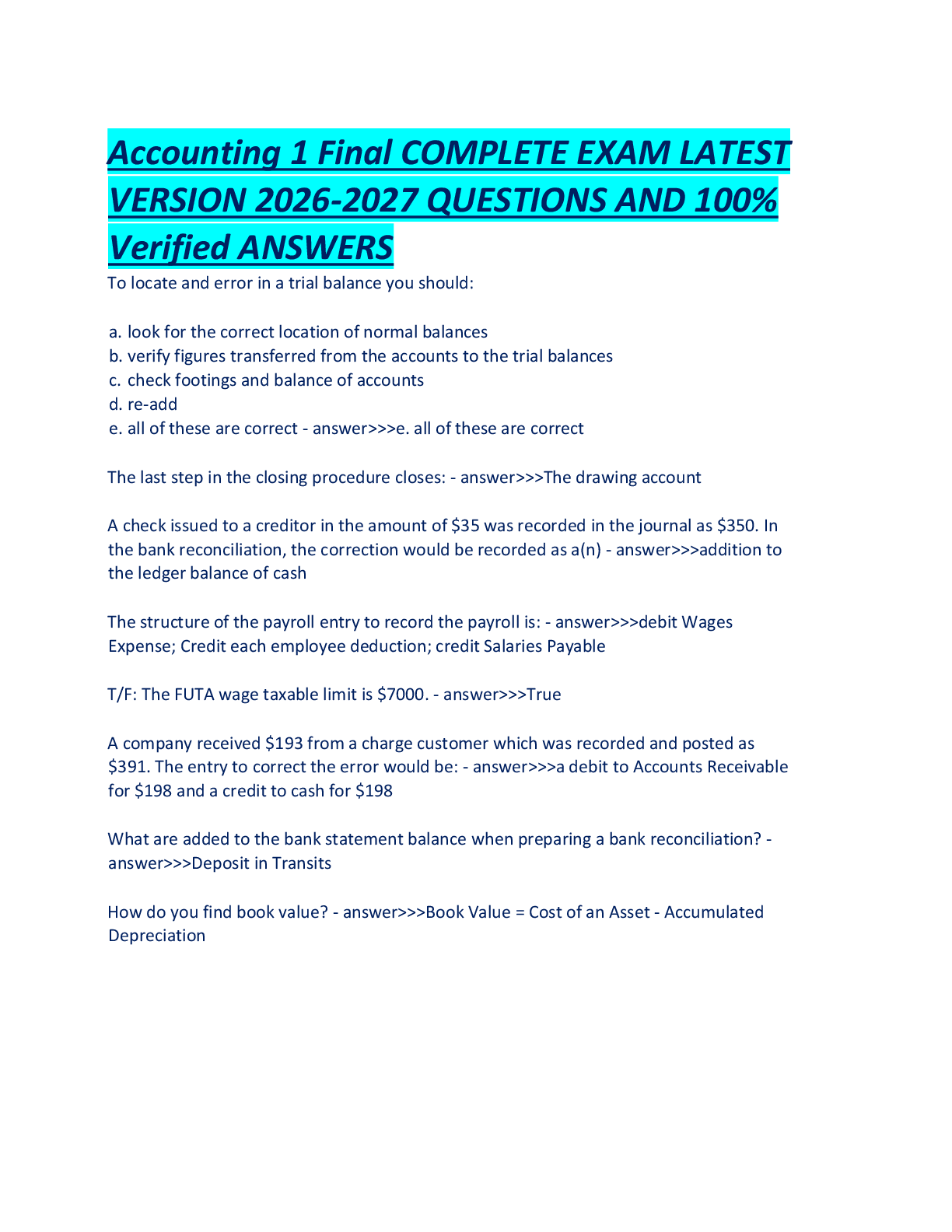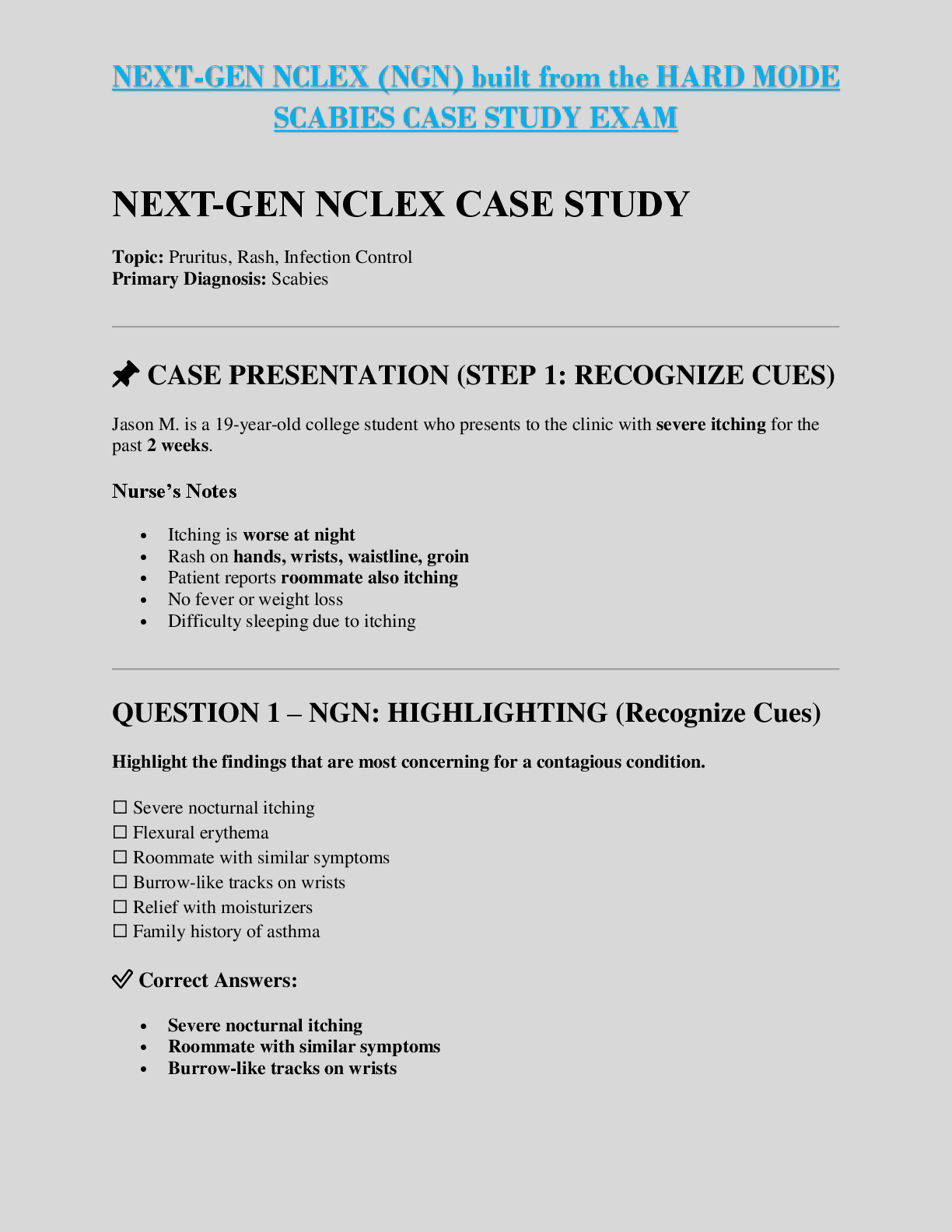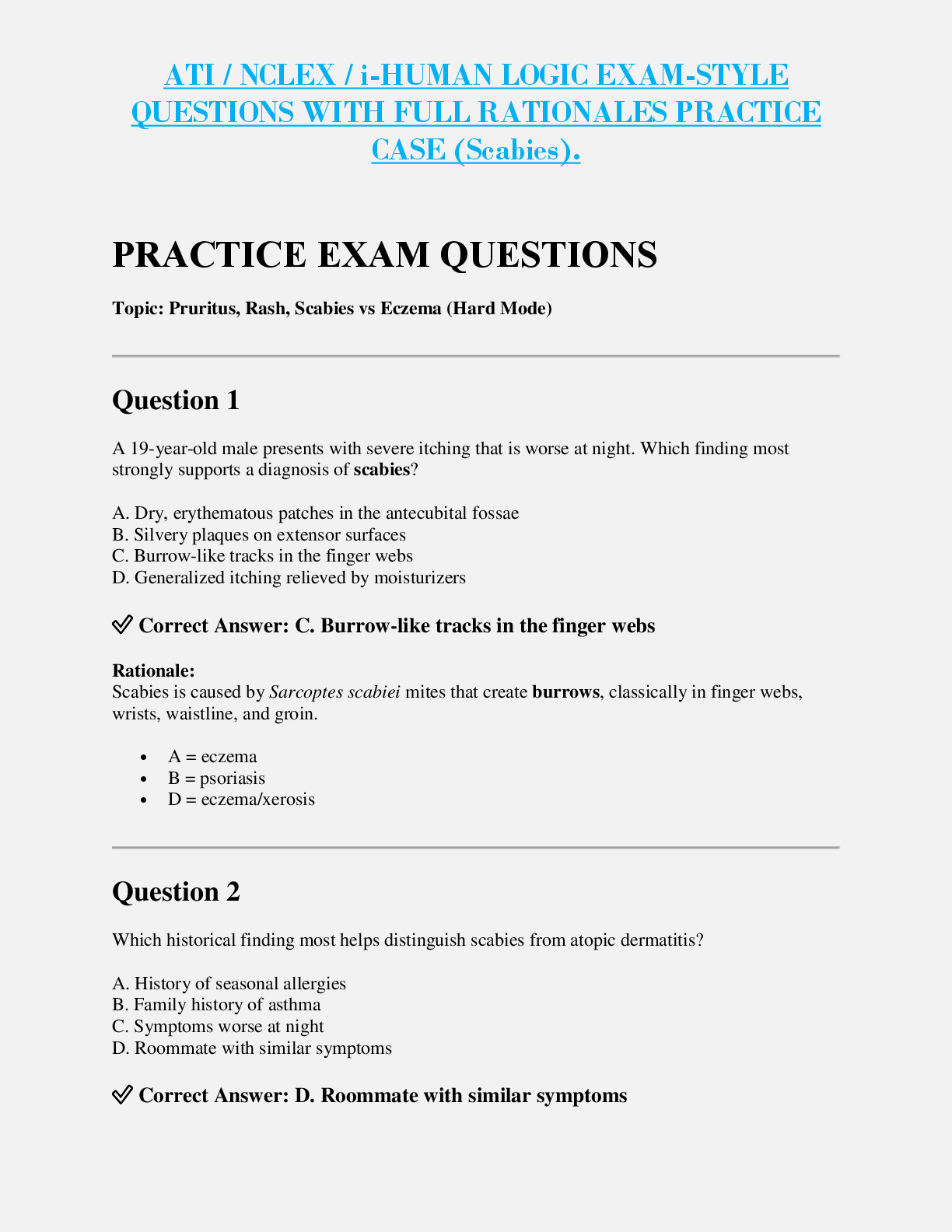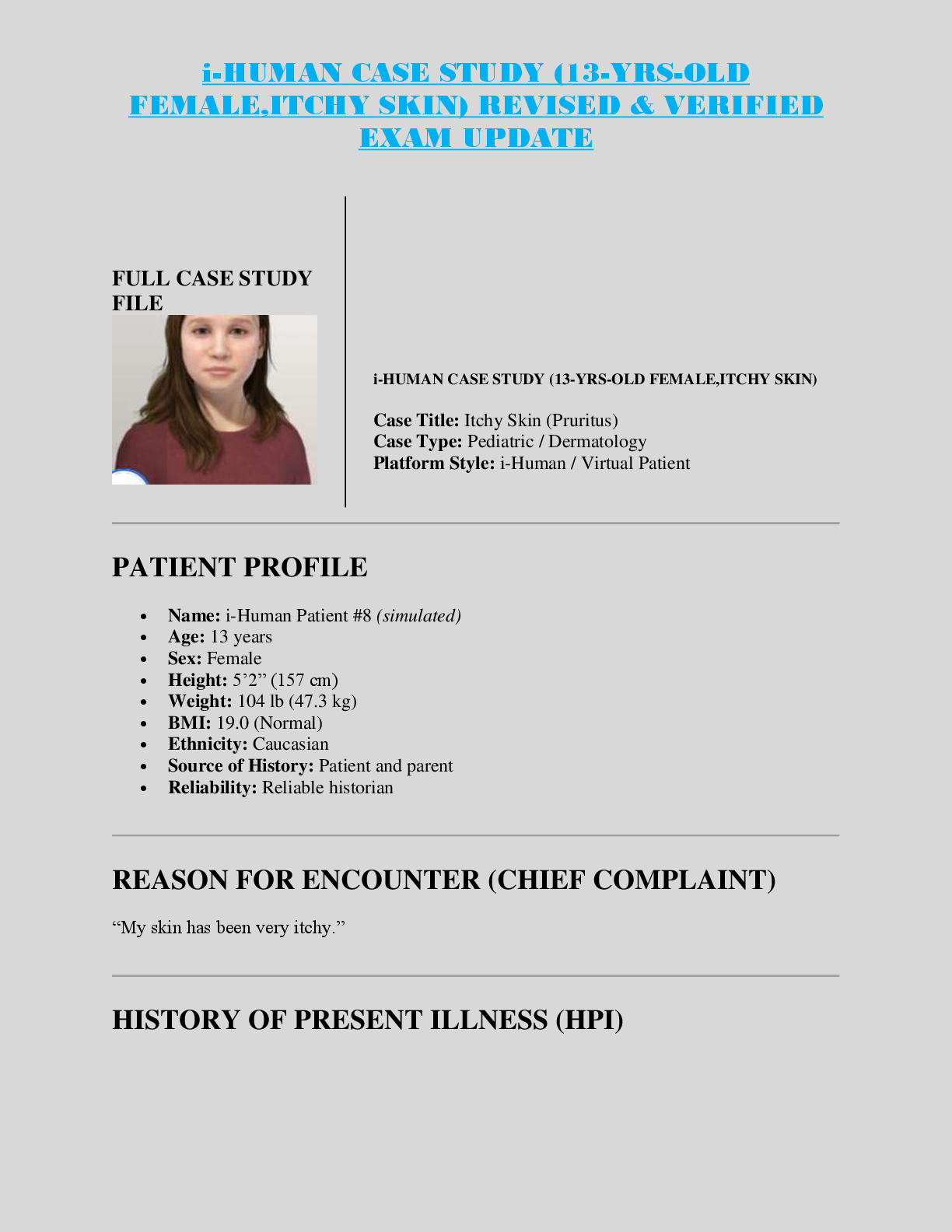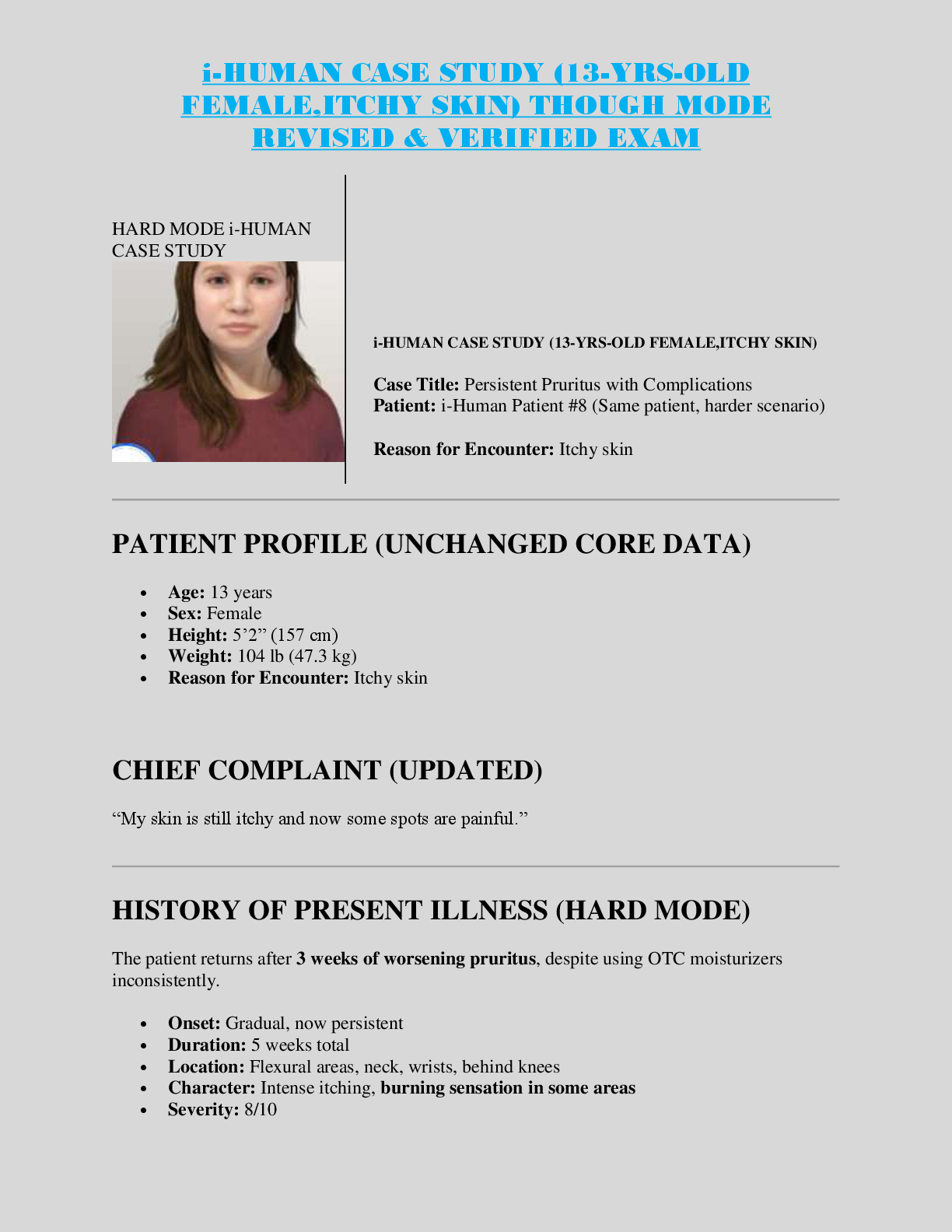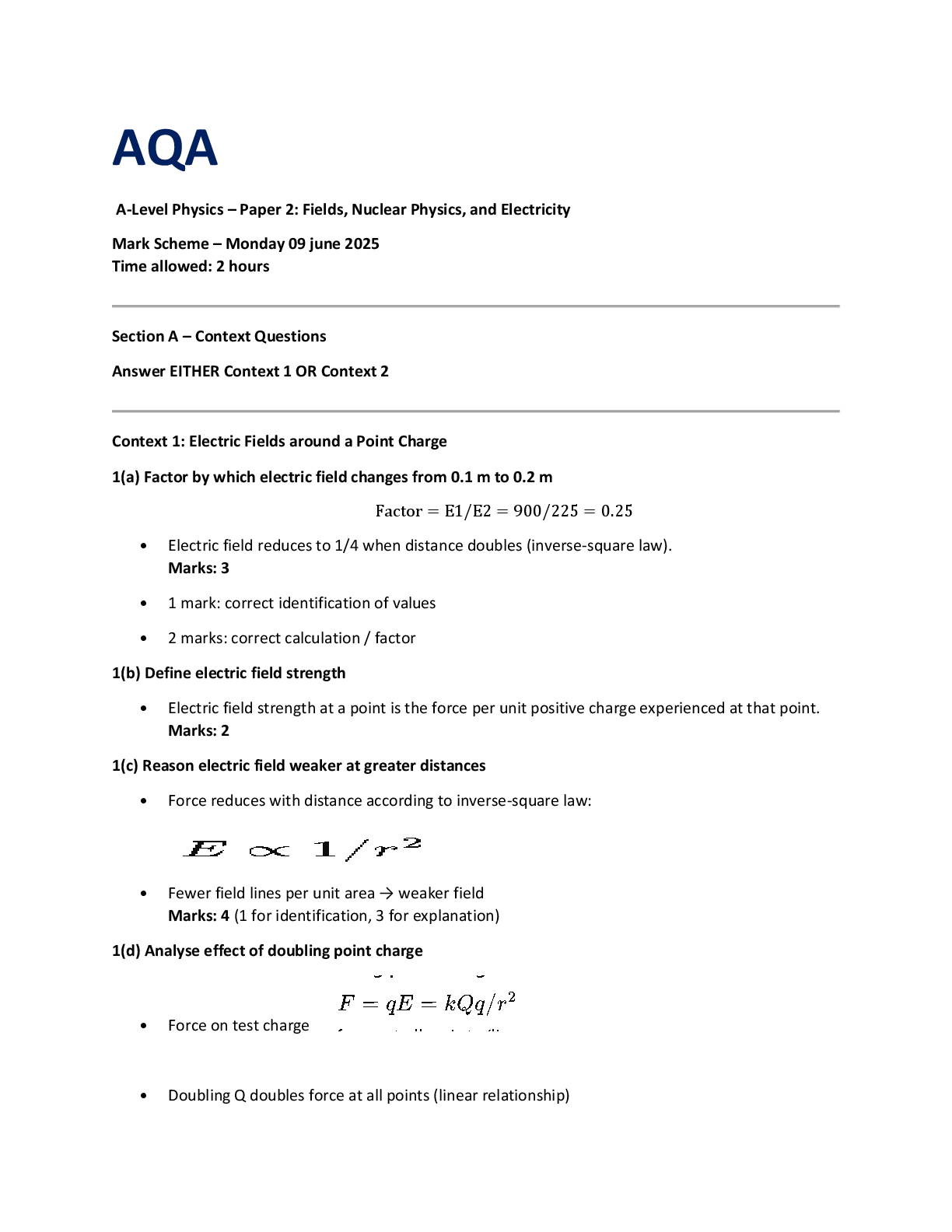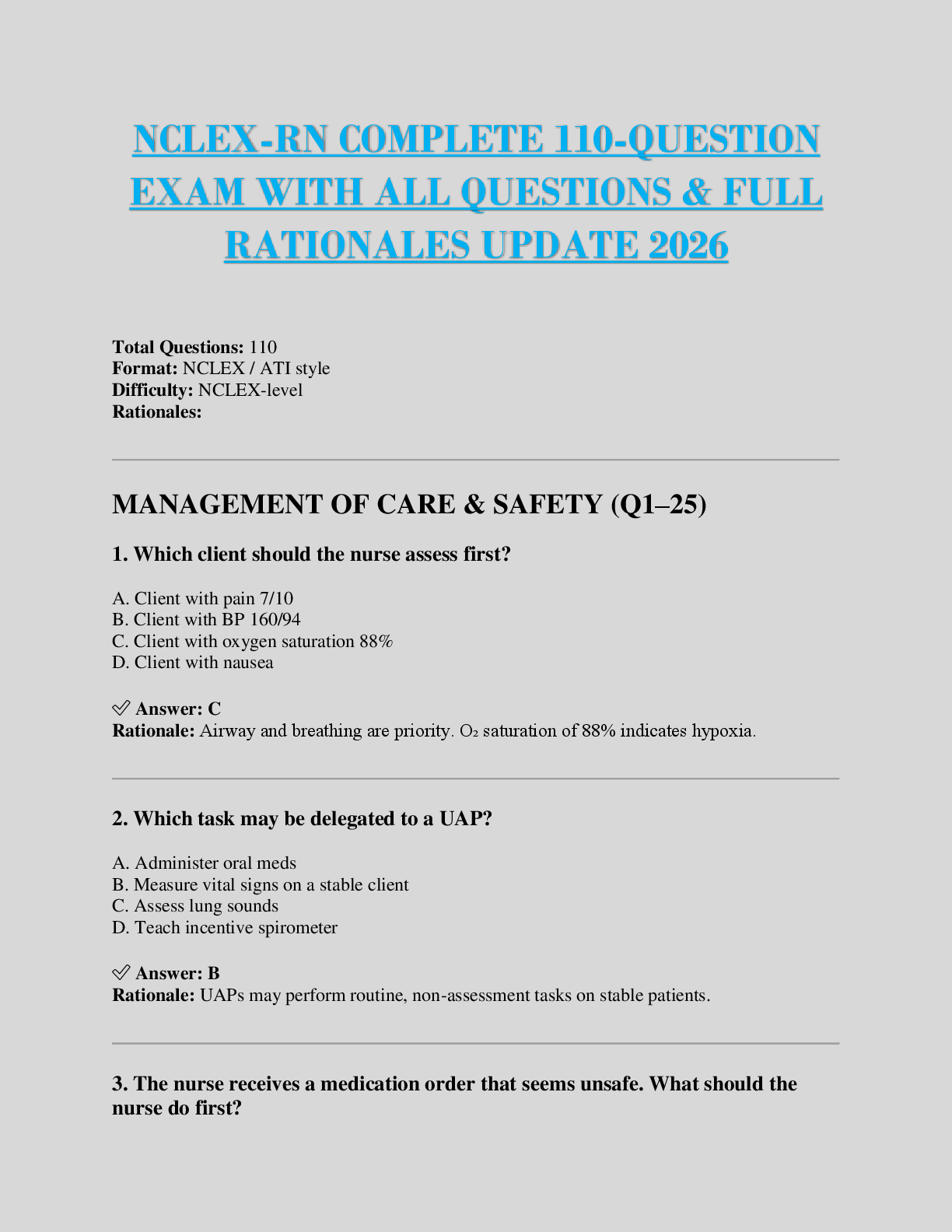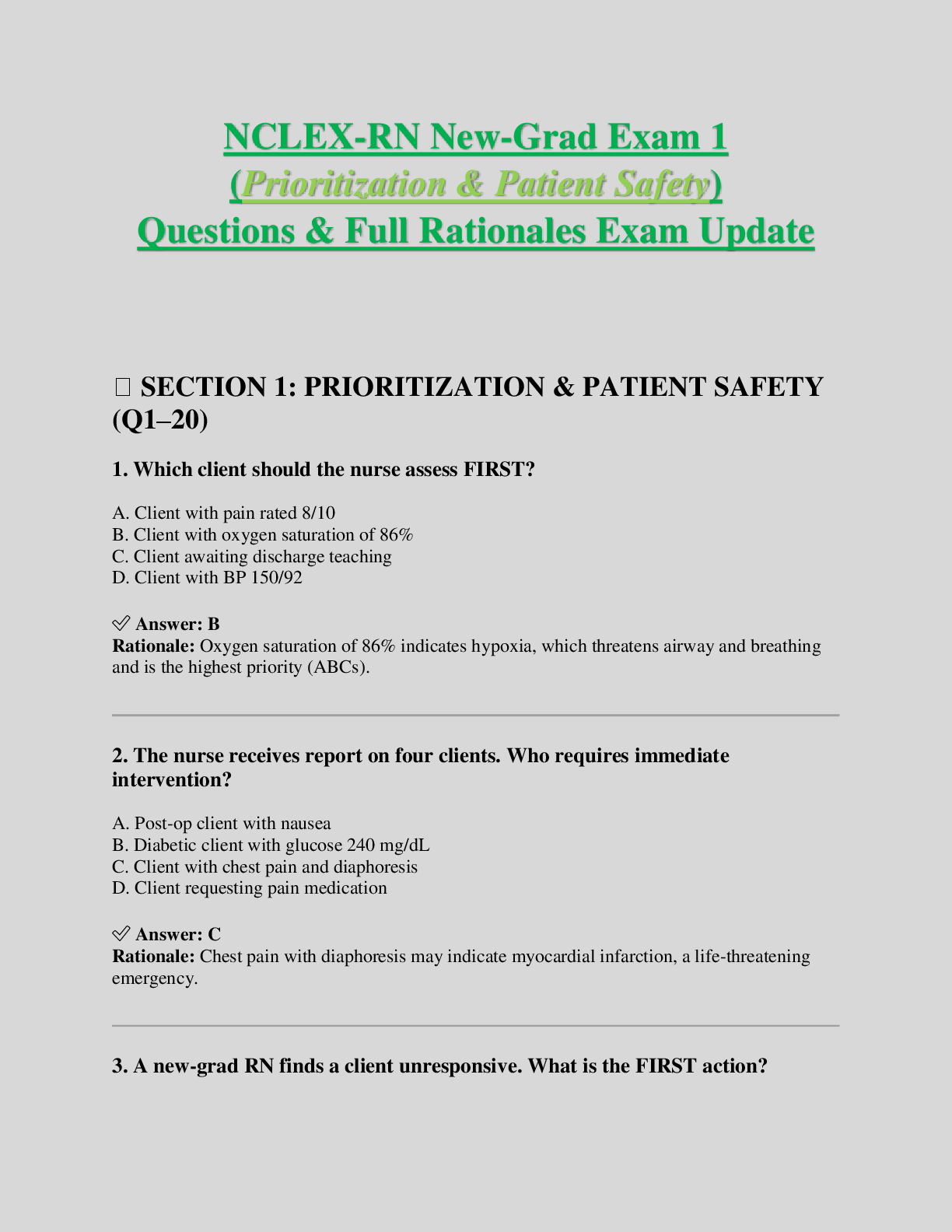NSG 321 Pre-Simulation Quiz
Scenario 13 Ivan Emoto Pre-Simulation Quiz
1. The wife of a patient suspected of having experienced a myocardial infarction asks the nurse about the purpose of myoglobin testing. Which resp
...
NSG 321 Pre-Simulation Quiz
Scenario 13 Ivan Emoto Pre-Simulation Quiz
1. The wife of a patient suspected of having experienced a myocardial infarction asks the nurse about the purpose of myoglobin testing. Which response by the nurse is most appropriate?
A. "Myoglobin testing is used to determine the degree of potential damage experienced by the heart muscle."
B. "Myoglobin testing is used to determine whether the heart muscle has been damaged in the past by an undetected infarction."
C. "Myoglobin testing is used to assess for the presence of cardiac damage within a few hours of onset."
D. "Myoglobin testing is used to determine the length of time since the heart muscle was damaged."
2. A nurse is caring for a female at risk for the development of cardiovascular disease. Which finding should the nurse recognize as a frequently reported initial symptom of the development of cardiovascular problems in women?
E. Fatigue
F. Chest pain
G. Edema
H. Left shoulder and arm pain
3. Cardiac output is determined by:
I. multiplying heart rate by blood pressure.
J. multiplying heart rate by stroke volume.
K. adding respiratory rate and heart rate and dividing by stroke volume.
L. dividing stroke volume by heart rate.
4. A nurse is caring for a patient recently diagnosed with cardiovascular disease. The patient asks the nurse why she feels short of breath at night while she is resting. Which response by the nurse is most appropriate?
M. "Your heart has difficulty pumping when you are reclining."
N. "When lying down, the blood flow from the lower extremities is redistributed and causes an increased workload to your heart."
O. "The heart is often enlarged in cardiovascular disease and it places stress on the lungs when you are lying down."
P. "Even in the presence of cardiovascular disease, lying down should not cause shortness of breath."
5. A nurse is caring for an elderly confused patient recently diagnosed with angina. When providing education to the patient's spouse, what information should be provided? Select all that apply.
Q. The pain is often brought on by stress and temperature changes.
R. The pain usually lasts between 30 and 60 minutes.
S. The pain may spread across the chest and back and down the arms.
T. The pain can be relieved with rest.
U. The pain will not subside without the initiation of oxygen therapy.
6. A nurse is discussing nutrition with a patient who has a history of cardiovascular disease. The patient reports feeling confused by all the discussion about cholesterol types. He wants to know which type of cholesterol is considered the "good one." Which response by the nurse is indicated?
V. "To be honest, all lipids are bad and should be avoided."
W. "As long as you keep your fat intake levels to less than 20% of your total intake, you should be fine."
X. "HDL is the 'good' type of cholesterol, as these lipids are higher in protein."
Y. "LDL is the 'good' type of cholesterol, as these lipids reduce the severity of cardiovascular disease."
7. A nurse assesses a patient's sitting, standing, and lying blood pressure. The patient asks the nurse why this is being done. Which response by the nurse is indicated?
Z. "Changes in blood pressure related to position changes are normal and need to be recorded."
AA. "Measurements of blood pressure associated with position changes may offer information about your cardiovascular status."
BB. "Slight decreases in blood pressure in response to position changes signal heart disease."
CC. "Blood pressure will normally not change with position changes. Position changes signal heart disease."
8. An older adult patient has been diagnosed with left ventricular hypertrophy. Which finding supports this diagnosis?
DD. Hypertension
EE. Hypotension
FF. Reduced activity tolerance
GG. Murmurs
9. A patient is being monitored in the telemetry care unit. The patient has been admitted with suspected angina. Which description of the pain supports this diagnosis?
HH. Squeezing
II. Shooting
JJ. Stabbing
KK. Sharp
10. A patient is scheduled to undergo cardiac exercise testing. Which statement by the patient indicates an understanding of the planned test?
LL. "I will need to avoid eating after midnight the night before my test."
MM. "I will need to wear a monitor for 24 hours to see how my body adapts to activity."
NN. "I should avoid smoking prior to the test."
OO. "It is important not to take my normally scheduled medications the week of the test."
[Show More]




